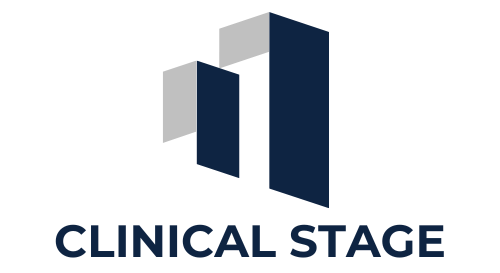Challenges and Solutions in Oncology Clinical Trials
Oncology clinical trials play a pivotal role in advancing cancer treatment and improving patient outcomes. These trials are essential for testing new therapies, refining existing treatments, and understanding the complex biology of various cancers. However, conducting clinical trials in oncology is uniquely challenging due to the intricate nature of the disease, the diversity of patient populations, and the stringent regulatory environment. This blog explores the unique challenges faced in oncology clinical trials and discusses potential solutions and innovations that can enhance their effectiveness and efficiency.
Unique Challenges in Oncology Clinical Trials
Patient Recruitment and Retention
One of the most significant challenges in oncology clinical trials is patient recruitment and retention. The patient pool is often limited due to the specific nature of cancer types and subtypes, which may require precise eligibility criteria. For example, a trial for a rare cancer subtype may struggle to find enough participants who meet the inclusion criteria, leading to delays or even the cancellation of the trial. Additionally, many patients may be ineligible due to comorbidities or prior treatments, further narrowing the pool of potential participants.
High dropout rates are another critical issue. Patients with advanced cancer may experience rapid disease progression, making it difficult for them to continue in the trial. Furthermore, the burden of frequent hospital visits, invasive procedures, and the potential for receiving a placebo can deter patients from enrolling or staying in a trial. These factors contribute to slow recruitment and high attrition rates, posing significant barriers to the successful completion of oncology clinical trials.
Complexity of Cancer as a Disease
Cancer is not a single disease but a collection of diseases characterized by uncontrolled cell growth and proliferation. The heterogeneity of cancer, with numerous types and subtypes, adds complexity to clinical trial design and implementation. Each type of cancer can respond differently to treatments, and within a single cancer type, there can be significant genetic, molecular, and phenotypic diversity. This diversity requires tailored approaches to treatment and complicates the identification of appropriate biomarkers and endpoints for trials.
Moreover, the rapid evolution and mutation of cancer cells during the course of the disease can lead to resistance to therapies, necessitating continuous adaptation of treatment strategies. This dynamic nature of cancer challenges the traditional clinical trial framework, which often relies on predefined endpoints and fixed protocols.
Ethical Considerations
Ethical considerations are paramount in oncology clinical trials, particularly when balancing the need for rigorous scientific evaluation with the urgency of providing potentially life-saving treatments to patients. The use of placebos or control groups in trials where effective treatments exist poses ethical dilemmas, especially in life-threatening conditions. Researchers must carefully design trials to ensure that patients are not denied effective therapies and that the benefits and risks are clearly communicated.
Informed consent is another critical ethical issue. The complexity of cancer treatments and the potential for severe side effects make it challenging to ensure that patients fully understand the implications of participating in a trial. This challenge is exacerbated in vulnerable populations, such as those with cognitive impairments or limited health literacy, who may struggle to comprehend the trial information.
Regulatory and Logistical Hurdles
Oncology clinical trials are subject to stringent regulatory requirements aimed at ensuring patient safety and the scientific integrity of the trial. These regulations, while necessary, can create significant logistical hurdles. For example, the need for approval from multiple regulatory bodies in international trials can lead to delays and increased costs. Moreover, the coordination of multiple trial sites, often spread across different countries, requires robust infrastructure and meticulous planning to ensure consistency in trial procedures and data collection.
Cost and Time
The financial and temporal costs of oncology clinical trials are substantial. The development of new cancer therapies involves significant investment in research and development, including preclinical studies and multiple phases of clinical trials. The long duration from trial initiation to completion, often spanning several years, adds to the financial burden. Additionally, the costs associated with patient monitoring, data analysis, and regulatory compliance further increase the overall expense of conducting oncology clinical trials. These high costs and extended timelines can be prohibitive for many organizations, limiting the number of new therapies that reach the market.
Potential Solutions and Innovations
Enhanced Patient Recruitment Strategies
To address the challenges of patient recruitment and retention, innovative strategies are being developed. Utilizing patient registries and advocacy groups can help identify and engage potential participants. These groups often have established relationships with patients and can facilitate communication and support, encouraging participation in trials. Broadening eligibility criteria, where feasible, can also help increase the pool of eligible participants. For example, allowing patients with comorbidities or those who have undergone prior treatments can make it easier to recruit a diverse and representative patient population.
Improving communication with patients and providing comprehensive support throughout the trial can enhance retention. This includes clear and empathetic communication about the trial's purpose, procedures, and potential risks and benefits. Offering logistical support, such as transportation or accommodations, can also reduce the burden on patients and their families, making it easier for them to participate in the trial.
Adaptive Trial Designs
Adaptive trial designs, such as basket and umbrella trials, are gaining traction as a way to address the complexities and variability inherent in oncology clinical trials. Basket trials allow researchers to test a single drug or combination of drugs across multiple cancer types that share a common molecular feature, regardless of the cancer's tissue of origin. This approach can streamline the drug development process and identify effective therapies more quickly.
Umbrella trials, on the other hand, test multiple treatments within a single cancer type, stratifying patients based on specific genetic mutations or biomarkers. This allows for more personalized treatment approaches and can lead to more precise and effective therapies. The use of biomarkers and personalized medicine approaches in these trial designs helps tailor treatments to individual patients, potentially improving outcomes and reducing the trial duration.
Leveraging Technology and Data Analytics
The integration of technology and data analytics into oncology clinical trials offers significant potential for innovation. The use of real-world evidence and big data can complement traditional clinical trial data, providing a more comprehensive understanding of treatment effects and patient outcomes. For example, electronic health records and patient registries can provide valuable data on long-term outcomes, treatment patterns, and adverse events.
Telemedicine and digital health tools are also transforming the way clinical trials are conducted. These technologies can facilitate remote monitoring and data collection, reducing the need for in-person visits and making it easier for patients to participate in trials. AI and machine learning algorithms can analyze large datasets, identify patterns, and predict outcomes, potentially accelerating the drug development process and improving trial design.
Ethical Innovations and Patient-Centric Approaches
Ethical considerations are being addressed through the development of compassionate use programs and improved informed consent processes. Compassionate use programs allow patients to access investigational treatments outside of clinical trials, providing a potential lifeline for those with no other treatment options. These programs require careful consideration of the potential risks and benefits, as well as close monitoring to ensure patient safety.
Improving the informed consent process is another area of focus. This includes developing clear, accessible, and comprehensive consent forms and providing additional support, such as educational materials and counseling, to help patients understand the trial. Ensuring that patients fully comprehend the implications of participation is critical to maintaining trust and integrity in the clinical trial process.
Collaborative Efforts and Partnerships
Collaborative efforts and partnerships are essential for overcoming the challenges of oncology clinical trials. Public-private partnerships, involving academic institutions, pharmaceutical companies, and government agencies, can pool resources and expertise to advance cancer research. These collaborations can facilitate the sharing of data and insights, streamline the regulatory process, and accelerate the development of new therapies.
Global collaborations and harmonization of regulations are also crucial for conducting international trials. By aligning regulatory requirements across countries, it is possible to reduce duplication of efforts and streamline the approval process. This can lead to faster access to new treatments for patients worldwide and support the development of therapies for rare cancers that may not have enough patients in a single country to conduct a viable trial.
Case Studies and Success Stories
Several case studies and success stories highlight the impact of innovative approaches to oncology clinical trials. For example, the success of basket trials in identifying effective treatments for rare mutations across different cancer types demonstrates the potential of this trial design. In one notable case, a basket trial led to the approval of a targeted therapy for patients with a specific genetic mutation found in multiple cancer types, providing a new treatment option for these patients.
Similarly, the use of umbrella trials has led to the development of personalized treatments for specific cancer subtypes. In one case, an umbrella trial identified a new treatment for a subtype of lung cancer with a particular genetic mutation, leading to improved outcomes for patients with this mutation.
Technological innovations have also played a critical role in advancing oncology clinical trials. For instance, the use of AI and machine learning in data analysis has helped identify new biomarkers and potential drug targets, leading to the development of more effective therapies. Telemedicine has enabled more flexible trial designs, allowing patients to participate from remote locations and reducing the burden of travel.
Collaborative projects have also led to significant breakthroughs. One example is a global collaboration between academic institutions, pharmaceutical companies, and regulatory agencies that resulted in the development of a new immunotherapy for a specific type of cancer. This collaboration facilitated the sharing of data and expertise, leading to the rapid development and approval of the therapy.
Future Directions in Oncology Clinical Trials
The future of oncology clinical trials is marked by emerging trends and technologies that promise to transform the landscape of cancer research and treatment. One such trend is the increasing use of precision medicine, which tailors treatments to individual patients based on their genetic and molecular profiles. This approach has the potential to improve treatment outcomes and reduce the risk of adverse events by targeting therapies more precisely.
The evolving regulatory landscape is also shaping the future of oncology clinical trials. Regulatory agencies are increasingly adopting flexible and adaptive approaches to trial design and approval processes, recognizing the need to balance rigorous evaluation with timely access to new treatments. This shift is expected to facilitate the development of innovative therapies and improve patient access to new treatments.
A continued focus on patient-centered approaches is essential for the future of oncology clinical trials. This includes engaging patients and their families in the trial design process, addressing their concerns and preferences, and providing comprehensive support throughout the trial. By prioritizing the needs and perspectives of patients, researchers can enhance the ethical and practical aspects of clinical trials, ultimately improving patient outcomes and satisfaction.
Notable Labs: Challenges and Solutions in Oncology Clinical Trials
Oncology clinical trials are crucial for the advancement of cancer treatment, offering hope for improved patient outcomes through the testing and refinement of therapies. However, these trials are not without significant challenges. Notable Labs explores these challenges, focusing on the complexities of patient recruitment and retention, the diverse nature of cancer as a disease, ethical considerations, and the stringent regulatory environment.
The intricacy of patient recruitment is highlighted by the limited and specific patient pools required for various cancer subtypes, compounded by high dropout rates due to disease progression. The diversity and rapid mutation of cancer cells further complicate trial design, demanding adaptive and personalized approaches. Ethical concerns, particularly around the use of placebos and ensuring informed consent, add another layer of complexity, requiring careful balancing of scientific rigor and patient welfare.
To overcome these challenges, Notable Labs advocates for innovative solutions, including enhanced recruitment strategies utilizing patient registries and broadening eligibility criteria. The adoption of adaptive trial designs, such as basket and umbrella trials, and leveraging technology for data analytics and remote monitoring, are also emphasized. Additionally, improving the ethical framework through compassionate use programs and clearer consent processes, alongside fostering public-private partnerships and global collaborations, are seen as vital steps forward.
By addressing these challenges with innovative solutions, Notable Labs aims to improve the efficiency and effectiveness of oncology clinical trials, ultimately accelerating the development of new cancer therapies and enhancing patient outcomes.
Conclusion
Oncology clinical trials are critical for advancing cancer treatment and improving patient outcomes. However, they face unique challenges, including patient recruitment and retention, the complexity of cancer as a disease, ethical considerations, regulatory and logistical hurdles, and high costs and extended timelines. Addressing these challenges requires innovative solutions and approaches, such as enhanced patient recruitment strategies, adaptive trial designs, leveraging technology and data analytics, ethical innovations, and collaborative efforts.
Success stories and case studies demonstrate the impact of these innovations and highlight the potential for continued progress in the field. The future of oncology clinical trials is promising, with emerging trends and technologies poised to transform cancer research and treatment. By embracing a patient-centered approach and fostering collaboration and innovation, stakeholders in the oncology community can continue to overcome challenges and drive advancements in cancer care.
As we look to the future, it is essential for all stakeholders, including researchers, clinicians, patients, regulatory agencies, and industry partners, to work together to address the challenges and seize the opportunities in oncology clinical trials. Through continuous innovation and collaboration, we can accelerate the development of new therapies, improve patient outcomes, and ultimately, bring us closer to a world where cancer is a manageable and curable disease.










